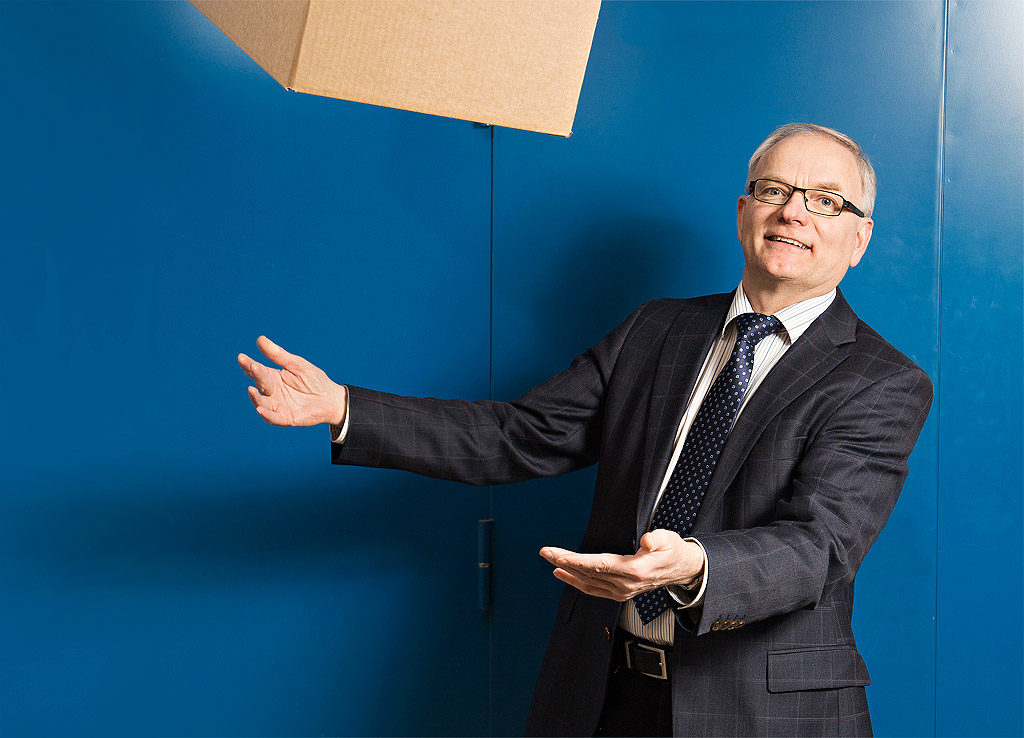The packaging sector’s active lobbyist

When three young men founded a firm in the packaging sector in Turku in 1973, they came up with the name Mercamer Oy. They later realised that it means “more trade”.
The My Invest Group, nowadays known for its packaging company, Mercamer, specialised in technical wholesaling and industrial packaging, has now a turnover of EUR 40 million and employs 70 people. Its firms stretch-wrap, shrink-wrap and bind Finnish export products. Mercamer is also a wholesaler in packaging machinery and materials and provider of packaging design and logistics services.
As main shareholder and chairman of the board of My Invest Oy, Mauri Nurmio is steeped in 40 years’ experience in the field. He is the chairman of the plastic packaging producer organisation, Suomen Uusiomuovi Oy, vice chairman of the Finnish Packaging Association, chairman of the Packing Section of the Association of Finnish Technical Traders and also event committee member of the Finnish Fair Corporation’s PacTec exhibition.
“I consider it important to have influence on issues, protection of interests and decision-making processes. The extended producer responsibility required of the packaging sector by the new Waste Act and the organisation of waste management of products resulting from this act have imposed a considerable amount of extra work specifically on Suomen Uusiomuovi Oy’s range of activities,” he says.
Good results demand time
Drafting of the decrees for the Waste Act have fallen considerably behind the original schedule. The slow pace, however, does not worry Nurmio. On the contrary, it is a question of a multifarious, significant and all-embracing body of legislation. He believes that the drafters are trying to take into consideration the opinions of several stakeholders on how the requirements of the Waste Act should be implemented.
“The Ministry of the Environment has a massive workload. In spite of that, we have managed to convey the opinions of producers and packers to them. If I could wish for anything, it would be that the cost impacts on consumers and the environment are taken into account and there is sufficient time to set up a sensible takeback network,” he explains.
In Nurmio’s opinion, when in spring 2011 the Minister of the Environment drove through the new Waste Act, which included extended producer responsibility, she was probably not aware of the costs caused by this amendment. Somehow, the “one cent per packaging” idea emerged as a target understating the extra burden that the amendment placed on packers. “Of course, there is a much larger issue. For instance, if plastic packaging has to be exported to Germany for recycling, packaging waste will cost even up to a thousand euros per tonne. If it ends up with mixed waste in waste-to-energy incineration, the cost will be a quarter of that.
Quantities to be reduced
The ongoing weak economic cycle has adversely affected the profitability of firms. High unemployment and weakened exports have reduced demand for products.
“Small firms, growing e-commerce from abroad and consumer imports as well as so-called free-riders have placed further burdens on firms that pay recovery fees. One can only hope that together we will find solutions for the implementation of the Act that can withstand critical examination now and later.”
In his opinion, firms in the packaging sector and customers buying in packaging materials will virtually without exception be the bearers of the costs arising from the Waste Act. He nevertheless considers this to be a positive challenge as an entrepreneur in the field of packaging.
“We will have to try to optimise the amount of packaging material used by customers more thoroughly so that recovery fees will not be paid in vain. Expertise and know-how are, after all, the added value we strive to give our customers,” he remarks.
Lobbying provides knowledge to support decisions
Nurmio has honed his skills in the many rough waters of business life. He has piloted his firm safely ashore in the midst of a currency loan crisis and the collapse of the rouble, among other perils. Protecting stakeholder interests or lobbying are often treated in a rather negative light by the public. Nurmio feels, however, that this is the only way, for instance, to provide political decision-makers with informed knowledge to support their decisions.
“The packaging sector forms an important component of the business world. The natural venue for protecting the interests of packers is the Finnish Packaging Association. Of course, the respective organisations representing trade and producers are also actively involved.”
“PYR Ltd’s role is also highly important to both the packaging sector and the entire business world. PYR has attended to the protection of producer interests, while looking for solutions to the challenges of the Waste Act and its decrees.”
text Pertti Suvanto | Photos Pekka Nieminen

